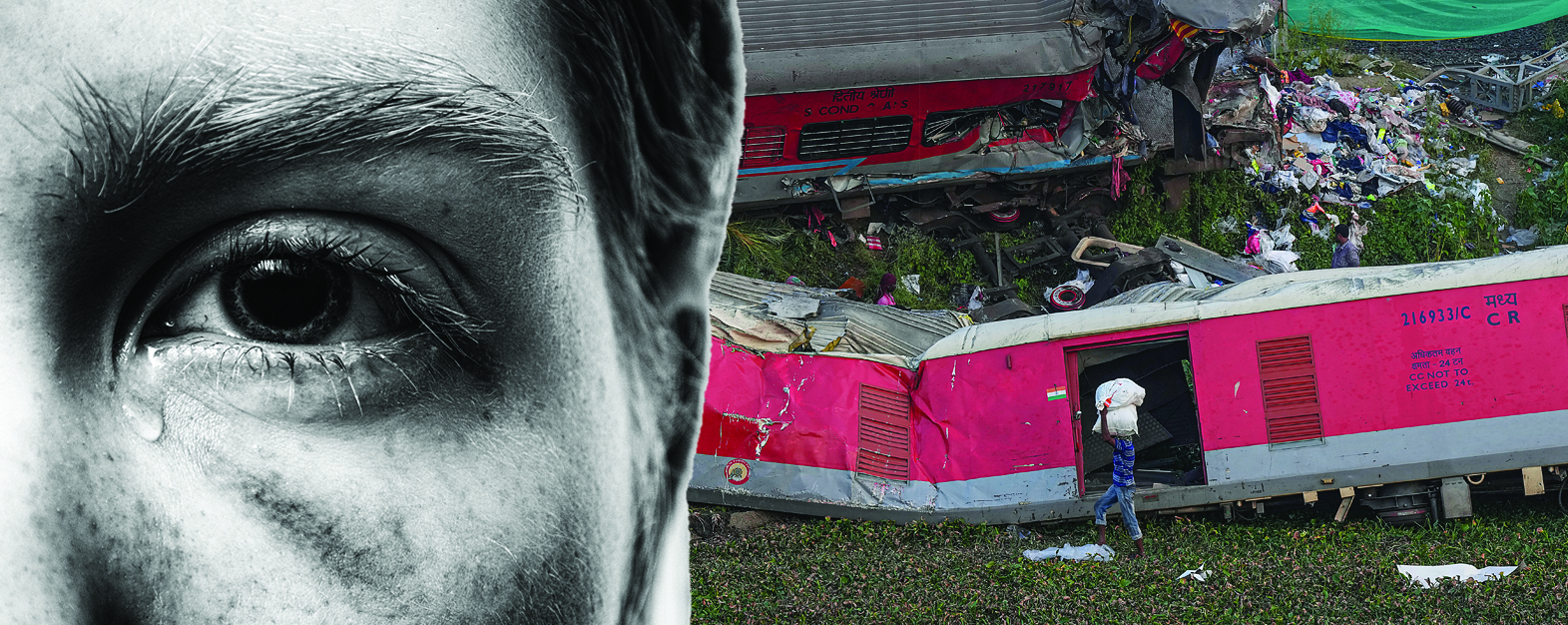Relieving the traumatised
Since catastrophes like the recent train collision in Odisha psychologically affect the survivors and others exposed to the incident, one should extend support to them in the form of empathy and therapy

The recent massive train collision and derailment have shaken the entire country. Our condolences and prayers go to the passengers, their families, and survivors.
The derailment in eastern India that has taken the lives of many and injured hundreds has been flashing on all leading news channels. People are visibly shaken and distraught. It is a devastating event that leaves lasting psychological scars on survivors, witnesses, and the affected community. Such traumatic incidents can trigger various psychological phenomena and require effective support systems to promote healing and resilience.
The psychological aftermath of such incidences needs a look into:
ATSD: acute traumatic stress disorder
A condition that can occur shortly after experiencing or witnessing a traumatic event. It shares a lot of similarities with post-traumatic stress disorder (PTSD).
The effects of these psychological and emotional symptoms can significantly impact a person’s daily functioning. Some common symptoms of ATSD include:
* Intrusive thoughts or memories: Recurrent, distressing thoughts, images, or memories related to the traumatic event;
* Flashbacks: intense, vivid recollections of the traumatic event, where some people even feel as if they are reliving it. This is accompanied by a heightened sense of fear;
* Avoidance: Individuals may avoid situations, people, or places that remind them of the traumatic event, for example, by avoiding discussions or thoughts related to the trauma as well;
* Negative mood and emotional disturbances: ATSD can lead to persistent feelings of sadness, anger, guilt, or shame. The person may have difficulty experiencing positive emotions and may withdraw from previously enjoyable activities or relationships. This is worrisome;
* Hyperarousal: A constant sense of being on edge, irritable, or easily startled, leading to trouble sleeping, concentrating, and being hypervigilant.
PTSD (post-traumatic stress disorder)
It’s important to note that ATSD is typically diagnosed within the first month following a traumatic event. If these symptoms persist for longer than a month, the diagnosis may be shifted to PTSD.
Can someone who wasn’t a part of the accident be impacted psychologically? What is vicarious trauma?
Yes, people can experience ‘vicarious trauma’, also known as secondary trauma. It is a psychological phenomenon that can occur when individuals are indirectly exposed to the trauma and suffering experienced by others. This could be through repetitive news watching. It can even affect individuals who provide care and assistance to those who have experienced trauma, such as healthcare professionals, therapists, social workers, emergency responders, or even close friends and family members.
A great degree of empathetic engagement with the traumatic experiences of the survivors leads to this, where someone may be repeatedly exposed to others’ trauma narratives, graphic details, or intense emotional expressions.
Who is a survivor? What is survivor’s guilt?
A person who survives a traumatic event is termed a ‘survivor’. Survivors may struggle with feelings of guilt or self-blame for having survived when others did not. These emotions can be overwhelming and contribute to a sense of sadness, shame, or isolation.
How do you support a survivor and their family?
* Grief and loss: The loss of loved ones and the collective grief experienced by the community can lead to profound sadness, anger, and a sense of emptiness. The grieving process is complex and different for each individual;
* Immediate crisis intervention: The ideal way to begin is as soon as possible with first aid, both physical and psychological. Trained professionals can run helplines that are accessible for emotional support. Screening for the most vulnerable population is important;
* Trauma informed help: Professionals should be trained to recognise and respond to trauma-related symptoms, offering empathetic and validating support;
* Individual therapy and group therapy: Both have an important role to play since individual therapy can be more tailor-made, but group therapy helps resonate with the shared experiences of others;
* Self-care and resilience building: Focusing on taking care of one’s routine, physical activity, and practising relaxation can help aid the recovery process.
Send your questions to [email protected]



